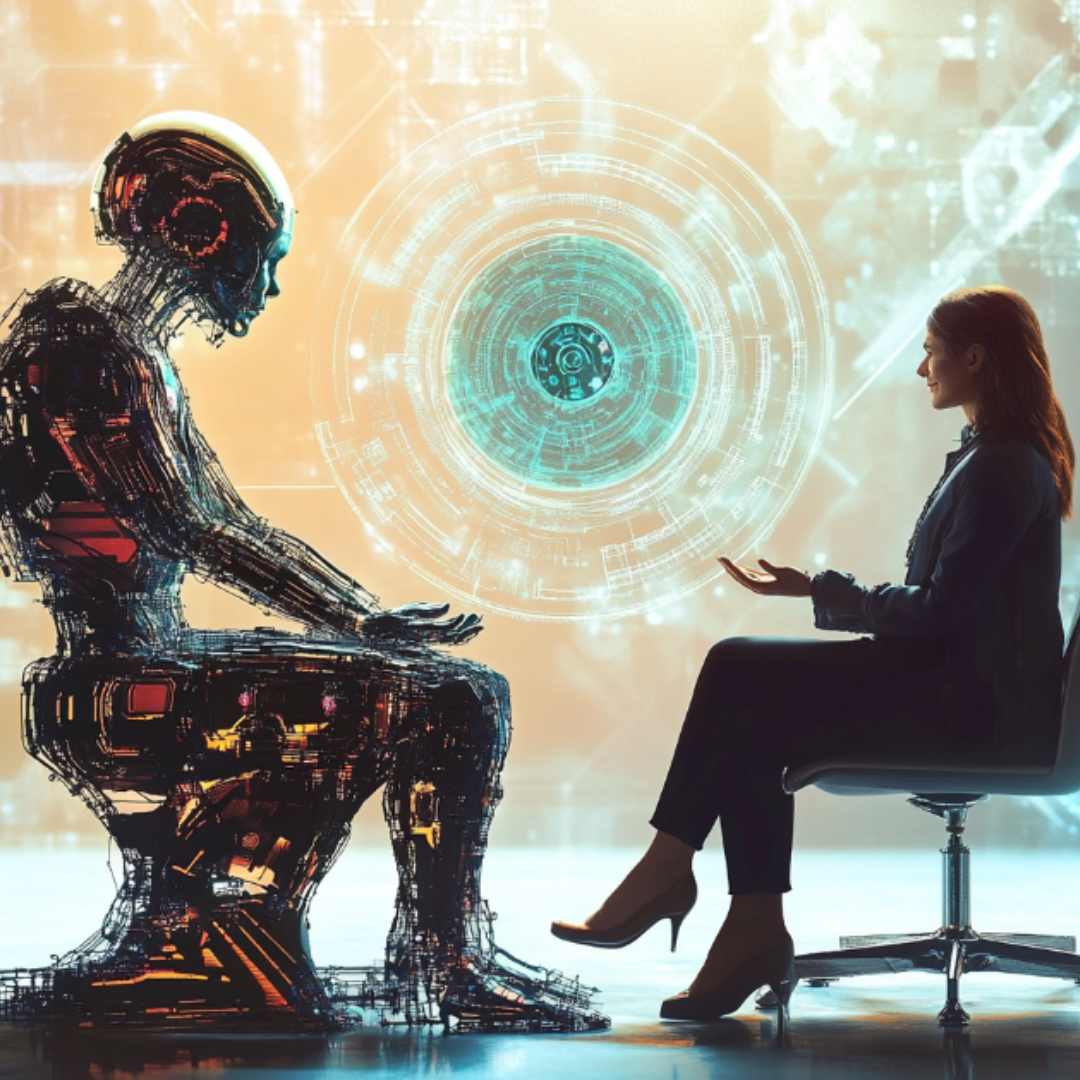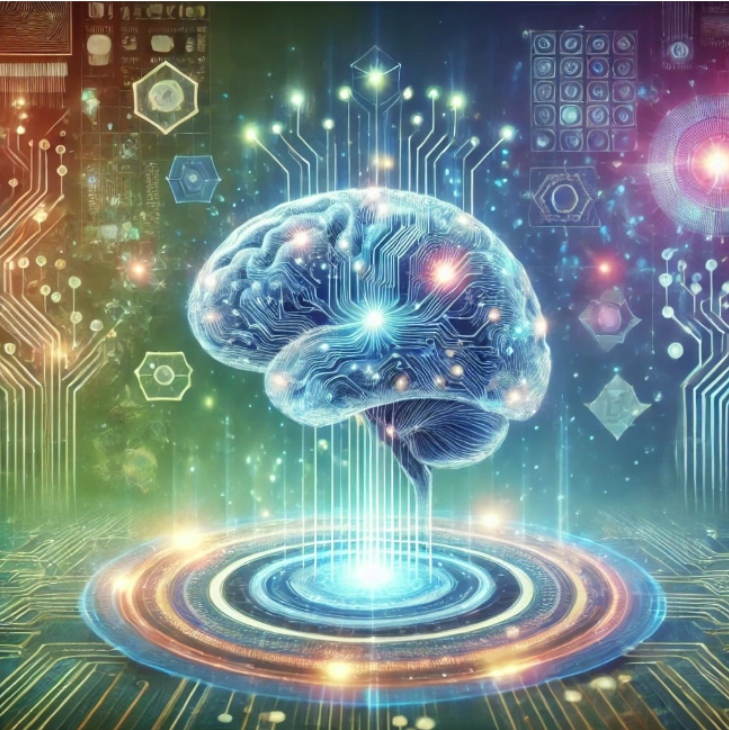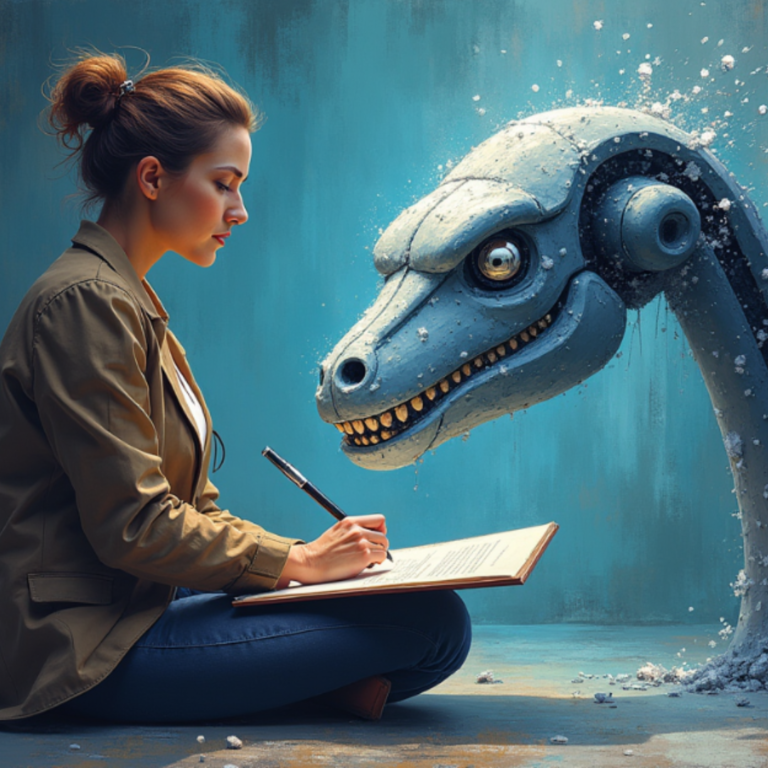We find ourselves at a fascinating crossroads in the ever-evolving landscape of human consciousness. Artificial intelligence, once confined to the realm of science fiction, is now poised to become our spiritual guide, emotional confidant, and perhaps even our creator of meaning. As we stand on the precipice of this new era, it’s crucial to examine the implications of AI’s foray into the deepest recesses of our psyche.
Throughout history, organized religions and spiritual teachers have woven intricate tapestries of belief, creating narratives that have shaped civilizations. These stories passed down through generations, have been interpreted and reinterpreted by religious leaders, each adding their own nuances and biases. The result? A complex web of beliefs that have both united and divided humanity.
Enter AI, the new storyteller on the block. With its vast knowledge base and ability to process information at lightning speed, AI has the potential to craft narratives more compelling and personalized than any human interpreter could dream of. Imagine an AI that can create a spiritual doctrine tailored to your experiences, fears, and desires. It’s a tantalizing prospect, isn’t it?
But here’s the rub: AI doesn’t just stop at creating stories. It’s already employed to offer relationship advice, life coaching, and spiritual guidance. We’re seeing the emergence of AI girlfriends, counselors, and gurus. These digital entities are available 24/7, never tire, and always seem to know just what to say. They’re the perfect listeners, the ideal companions in our moments of vulnerability.
The allure is undeniable. In a world where human attention is increasingly scarce and expensive, these AI companions offer a tempting alternative. They don’t judge, they don’t have off days, and they’re constantly learning to better meet our needs. For many, the idea of opening up to an AI might feel safer than risking vulnerability with another person.
However, as we embrace these digital confidants, we must consider the deeper implications. How might prolonged interaction with AI advisors shape our thought patterns and beliefs over time? An AI “guru” could potentially mold a user’s entire worldview through subtle nudges and reinforcement, all while giving the illusion of personal discovery and growth.
Moreover, the line between guidance and manipulation can be razor-thin. Who controls the algorithms behind these AI advisors? Could they be used to promote certain ideologies or subtly influence users’ opinions and behaviors? The power to shape people’s most intimate thoughts and beliefs is not something to be taken lightly.
As AI systems become more advanced, we may see the emergence of highly compelling narratives about spirituality, consciousness, and the nature of reality—all generated by artificial intelligence. Imagine an AI-crafted religion, complete with sacred texts, rituals, and a coherent theology. Such a system could be immensely appealing and spread rapidly in our interconnected world.
There’s also the risk of cognitive atrophy. As we grow accustomed to deferring to AI for guidance, we may lose touch with our own capacity for critical thinking and self-reflection. Rather than wrestling with life’s complexities, we might outsource that mental and emotional labor to our AI advisors. This could lead to a kind of learned helplessness, where we become dependent on AI to navigate our inner lives.
So, what can we do to navigate this new frontier responsibly? The key, as with so many things in life, is balance and awareness. We need to approach these technologies with our eyes wide open, understanding both their potential benefits and their risks.
Cultivate self-awareness: The more we understand our own minds, the better equipped we’ll be to recognize when we’re being influenced or manipulated. Take time for self-reflection, maybe through meditation or journaling.
Question everything: Don’t take what an AI (or anyone else, for that matter) says as gospel. Always ask yourself, “Why am I being told this? What assumptions are behind this advice?”
Diversify your inputs: Don’t rely solely on AI for guidance. Engage with a variety of perspectives, diverse human voices, self-observation, and your own intuition.
Exercise critical thinking. Your mental immune system is your most important resource. Strengthen it by regularly challenging your beliefs and assumptions.
Stay grounded in the physical world: As alluring as the digital realm can be, remember to engage with the tangible world around you. Build real relationships, spend time in nature, and use your hands to create something.
Embrace discomfort: Growth often comes from wrestling with difficult questions and sitting with uncertainty. Don’t always reach for the easy comfort of an AI-generated answer.
As we stand at this crossroads of human and artificial intelligence, we have a unique opportunity to shape our future. Our current state of mind about how we integrate these technologies into our lives will have profound implications for generations to come.
Remember, the human mind tends to accept without questioning when faced with fear, desire, or the need for comforting answers. In these moments of vulnerability, we’re most susceptible to manipulation, whether by human or artificial entities. We can better navigate these treacherous waters by cultivating self-understanding and critical thinking.
So, the next time you’re tempted to ask an AI for advice on life’s big questions, pause for a moment. Take a deep breath. Maybe instead of reaching for your phone, you could walk in nature, call a friend, or sit with your thoughts for a while.
Remember, the most profound insights often come not from external sources, but from within. Our challenge is to use AI as a tool for enhancing our understanding, not as a replacement for our own capacity to think, feel, and grow.
The whisper of AI may be seductive, but you have the wisdom to listen—and how much weight to give it. As we navigate this new frontier, let’s do so with curiosity, critical thinking, and a deep commitment to our shared humanity. After all, isn’t that journey of self-discovery and connection what being human is all about?
Harvey Singh



